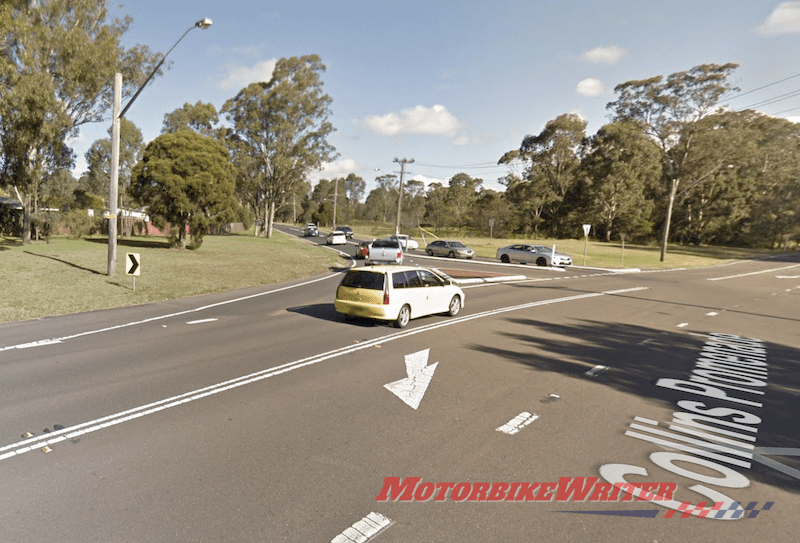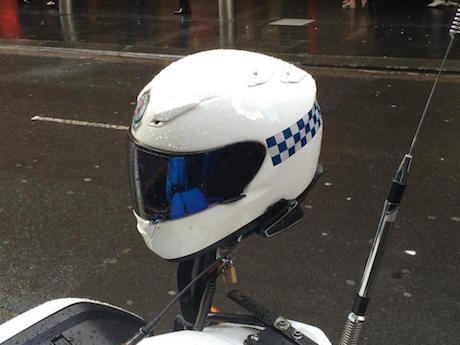A male rider has died after his motorcycle struck a telegraph pole in Ingleburn, south-west Sydney, yesterday (12 October 2019).
Police have identified the rider as a 49-year-old man from Macquarie Fields.
“He was riding a back FL series Harley-Davidson — witnesses said at high speed — when he hit the power pole,” a police media spokesperson says.
“He sustained major head injuries, dying on impact. So very sad.”
Police do not have permission to release the rider’s name.
Our sincere condolences to the rider’s family and friends.
The crash happened about 12.50pm on Collins Promenade, Ingleburn.
Officers from Campbelltown City Police Area Command established a crime scene and commenced an investigation into the circumstances surrounding the crash.
A report will be prepared for the information of the Coroner.
Anyone with information about this incident is urged to contact Crime Stoppers: 1800 333 000 or https://nsw.crimestoppers.com.au. Information is treated in strict confidence. The public is reminded not to report crime via NSW Police social media pages.
Roadside hazards

A 2017 United Nations road safety report recommended the removal of roadside hazards such as poles as they are a proven cause of serious motorcycle crash injuries and deaths.
The 108-page World Health Organisation “Powered two- and three-wheeler safety” report says a motorcycle crash with a fixed roadside hazard is 15 times more likely to be fatal than a crash on the ground with no physical contact with a fixed hazard.
They also increase the severity of injuries in such crashes, it says.
The WHO report also suggests the removable of other roadside hazards such as trees, guardrails, utility poles and drainage structures.
It says the severity of a motorcycle, scooter or powered-two- or three-wheeler (PTW) crash with a roadside object depends on the speed, impact angle, surface area of the object and the impact absorption properties of the object.
They cite a study that found roadside objects were the primary cause of fatalities and another Australian and New Zealand study presented at the 2015 Australasian Road Safety Conference that concluded that almost all roadside objects are hazardous to PTW users.
“This is mainly due to the fact that all objects have been designed for safety of cars and their occupants rather than for PTWs,” it says.
The report says creating a roadside “clear zone” would not only minimise the risk of a rider hitting a hazardous object, but also provide room for them to correct errors.
“Choice of location of roadside equipment used for lighting or signage can also have a negative impact on PTW safety,” it says.
“Guardrails and crash barriers are often used to separate vehicles from roadside hazards but the design of such devices needs to take motorcyclists into account.”


